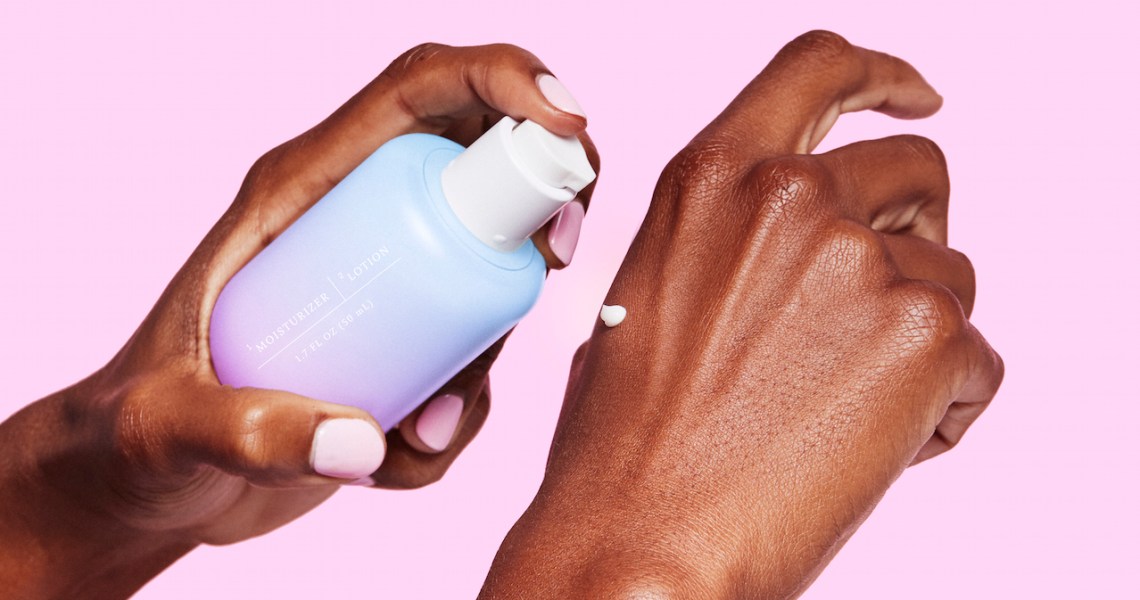Function of Beauty is venturing deeper into its customization mission by expanding into skin care.
On Tuesday, Function of Beauty launched three skin-care products: a cleanser, a serum and a moisturizer. The company’s skin-care offerings follow quickly after the 5-year-old company expanded into body care in July. According to the brand, up to 3 billion skin-care formulations are possible. Customers take a three-question quiz on skin type and makeup usage, and choose up to three out of 13 skin goals (such as anti-pollution and anti-aging). They can then opt to customize the fragrance, size, frequency and formats, such as a jelly or gel cleanser, of the recommended products.
Unlike the body-care category, which Zahir Dossa, Function of Beauty co-founder and CEO, previously said was going to be targeted to existing customers, the skin-care products are seen as a new customer acquisition tool and key revenue driver. Function of Beauty raised $12 million via a Series A funding round in March 2017 and is now valued at over $110 million. As of 2018, Function of Beauty had produced over 1 million individual hair-care formulas. Dossa declined to provide updated sales figures and growth. Function of Beauty’s core customer demo is 18- to 34-year-olds.
“There is a huge overlap between our current customer and the customer that wants this. At the same time, we think there will be a whole new segment that we’re able to tap into through custom skin care and then get them introduced to custom hair care,” he said.
With a product portfolio that now spans hair, body and face, Function of Beauty is well-positioned in the customization market and represents one of the larger customization brands, compared to competitors like hair-care brand Prose, skin-care brands Proven or Atolla, and even L’Oreal USA. Cyrille Deschamp, Prose vp of finance and operations, indicated in August that Prose plans to move beyond hair, though he did not say when or to what category.
With Function of Beauty’s vertically-integrated manufacturing and international distribution, it could be a prime target for acquisition. It is valued at $11o million based on its 2017 funding round, however many brands often try to reach $100 million in annual sales to achieve a $1 billion valuation or before going public.
To develop skin care, Function of Beauty conducted customer surveys with 40 people between July and August 2019, followed by quantitative in-home usage testing with 200 total people in March and June 2020, according to Samantha Mang, Function of Beauty svp of brand and innovation. Mang and the team came away with two key insights: Skin care is confusing to most people, and people are looking for skin care products with multiple benefits.
“All women, whether they’re skin-care neophytes or more advanced, say the category is very confusing. There’s a ton of newness, in product formats, in the [products in the] aisle at Sephora and in buzzy ingredients,” said Mang. “We designed our skin care around three principles: to simplify her routine, to provide effective products and to be delightful for her to use.”
Dossa said Function of Beauty will treat the skin-care category as a huge area of growth and will lean on performance marketing. He declined to share marketing investments, but said Function of Beauty has become better at leveraging organic and paid influencers across Instagram, YouTube and TikTok, and will also use bottom-funnel Facebook and Instagram ads. He added that, as the company has grown, its threshold for paid promotions with influencers has increased and has become a small portion of its social media marketing, which keeps customer acquisition costs low. However, he declined to specify the costs. Function of Beauty also experimented with above-the-line, national linear TV ads as a growth marketing opportunity in January.
“We did a lot of brand segmentation before skin care to figure out how to divide our target customers into meaningful buckets. There’s one target customer that we over-index with, who is a good target for both custom hair care and skin care,” said Dossa. “It’s not that they approach their hair in a particular way, for example, but they have an overall positive outlook on life and an interest in [personal] improvement, and they like trying new things.”




